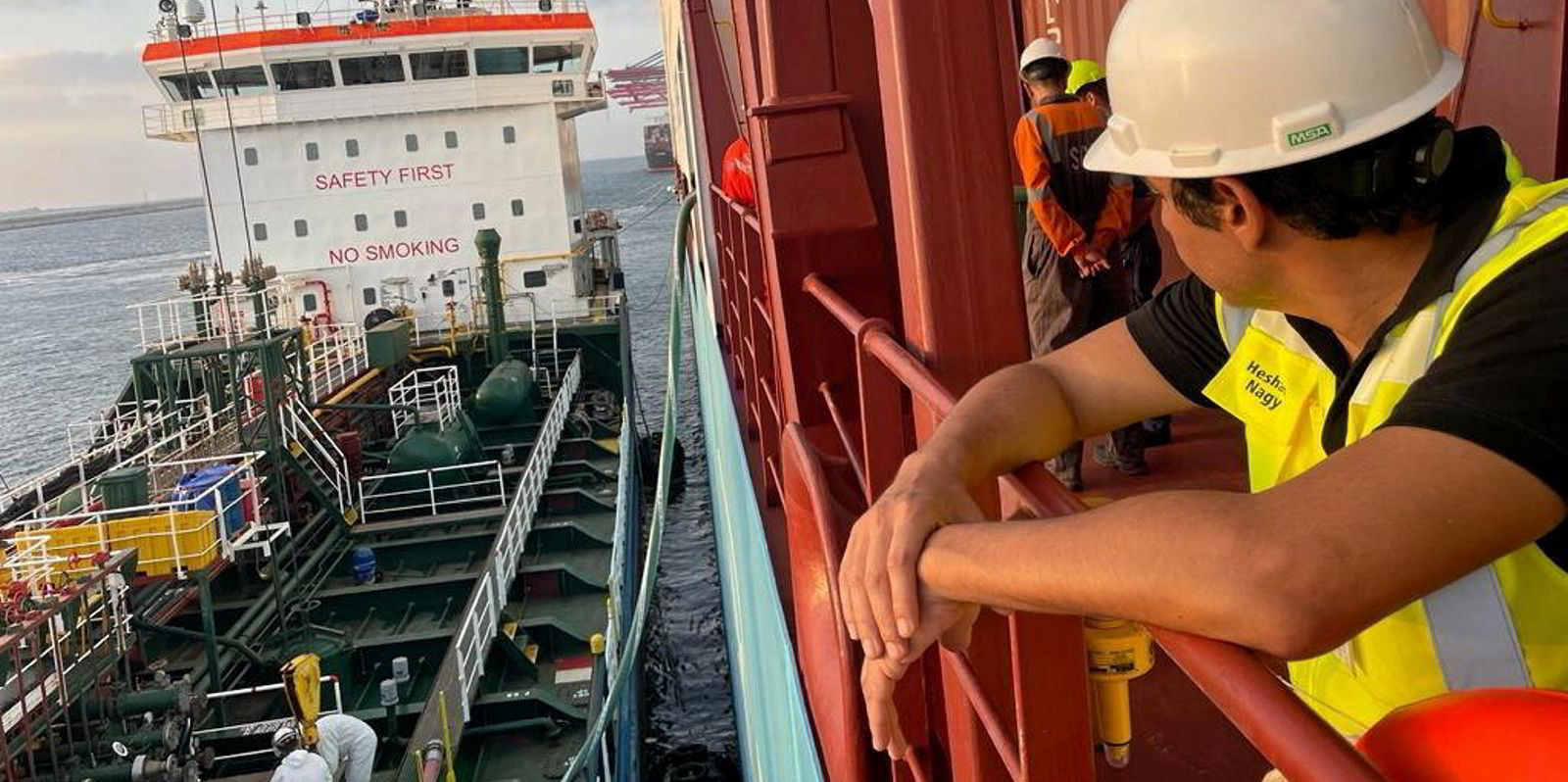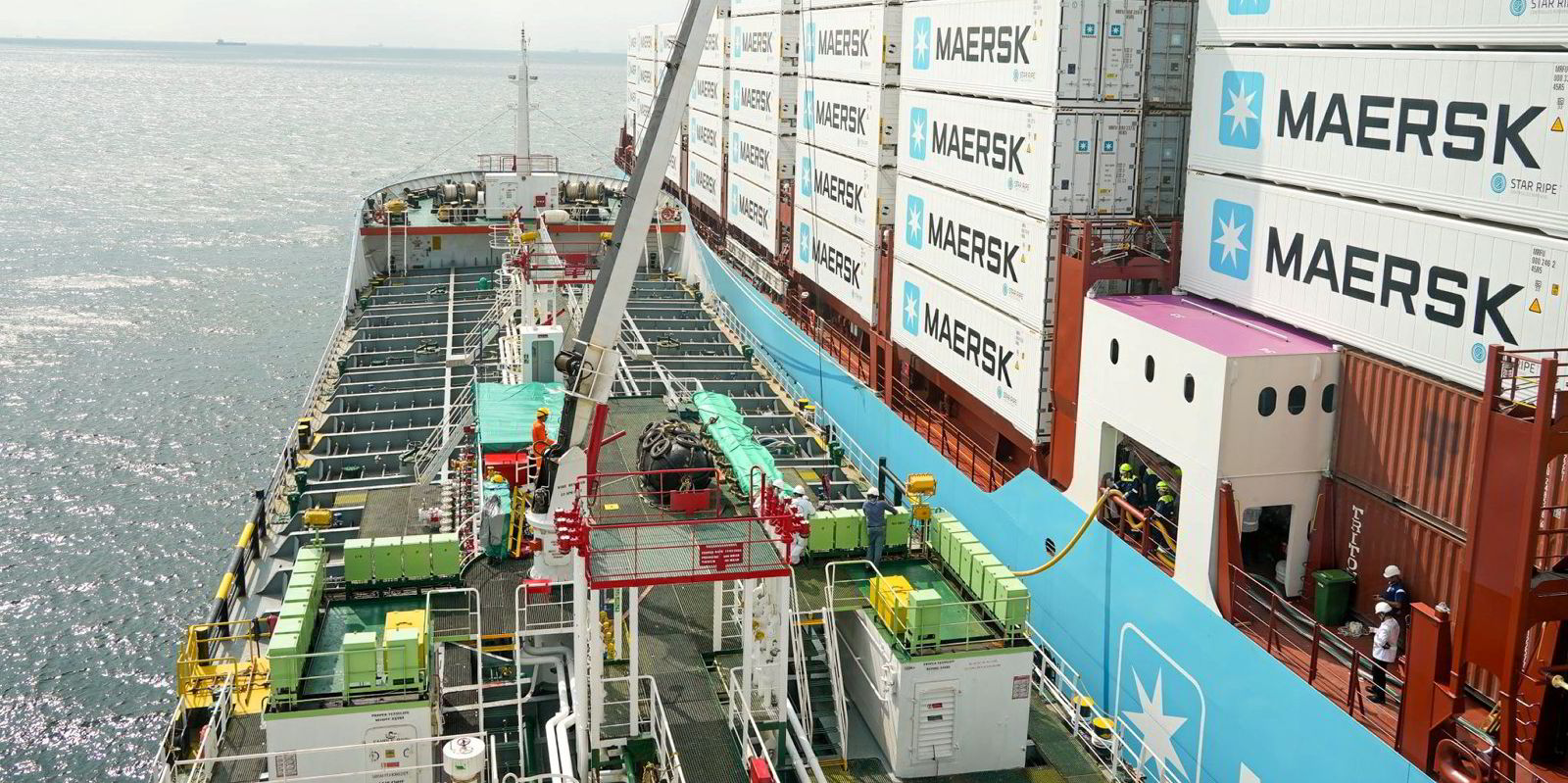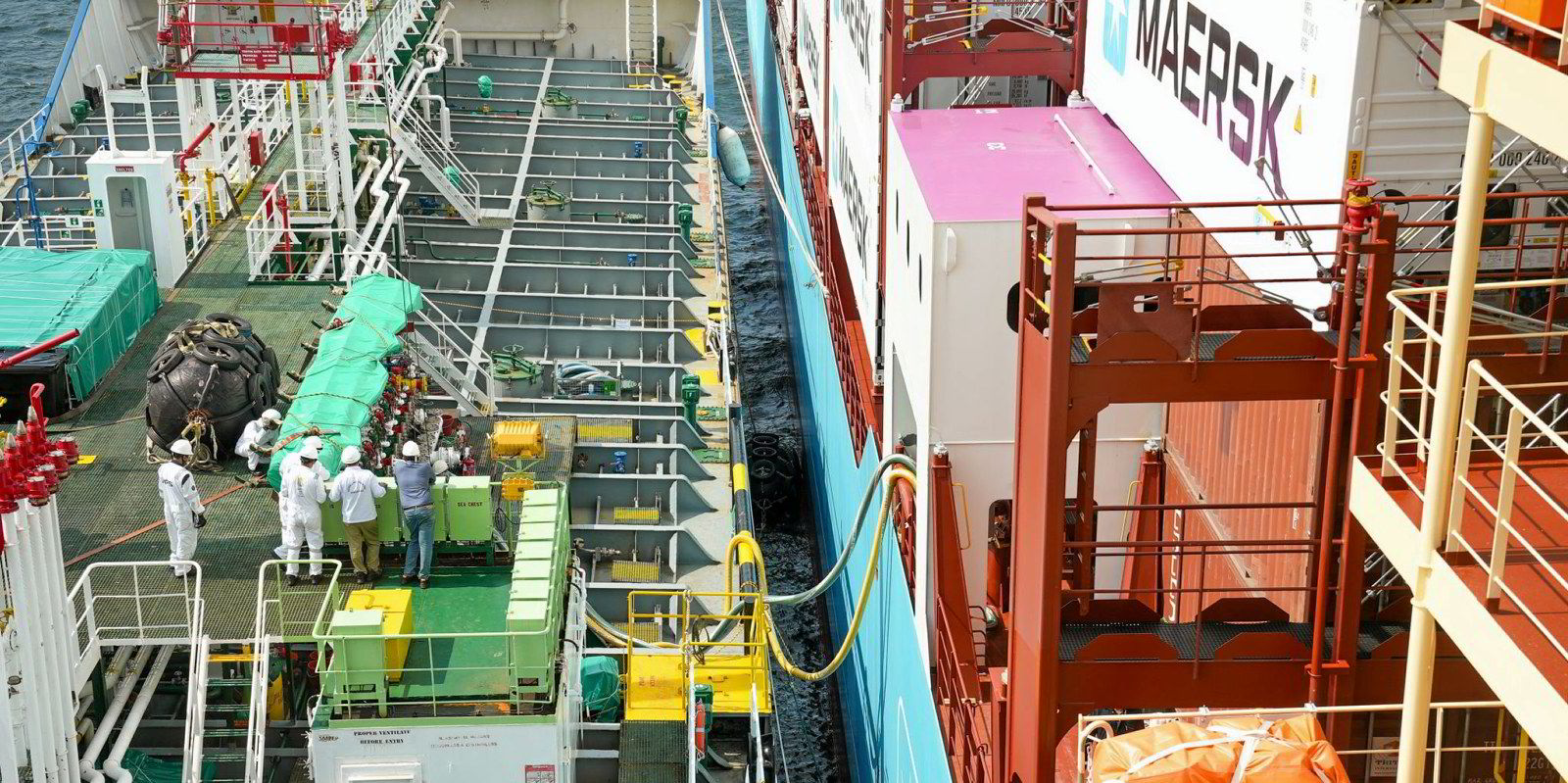AP Moller-Maersk’s first methanol dual-fuelled container ship has made a third stop to take on bunkers on its pioneering maiden voyage to Copenhagen.
The 2,100-teu vessel has been referenced as the Maersk Solstice, but the company is carefully avoiding giving a name ahead of its Copenhagen naming ceremony in September.
The General Authority for the Suez Canal Economic Zone said the ship was bunkered with 500 tonnes of green methanol in an operation lasting nearly six hours at the Suez Canal Container Terminal in East Port Said.
The feeder ship is being fuelled with green methanol supplied on a mass-balanced approach.
Speaking about this in a recent webinar, Maersk head of energy transition sustainability Ingrid Marie Andersen explained that the company’s supply of green methanol, which is being provided by Dutch producer OCI Global, comes from landfill sites in the US.
Andersen said the biogas from these sites is captured, cleaned and turned into bio-methane. It is then put into the grid, which is connected to the OCI plant that produces bio-methanol.
“This production takes place using the principle of mass balance,” she said, so the certification ensures where the bio-methane comes from and its greenhouse gas properties, which can be traced to Maersk’s bio-methanol.
By buying green certificates associated with it, Maersk can claim those environmental savings from the fuel, she said.
Explaining the process to TradeWinds OCI said that while the green methanol is produced in the US from bio-methane and injected back into the gas grid, the certified molecules for this particular voyage have then been physically shipped to each bunkering location.
Bunker brokers have told TradeWinds that the product — OCI HyFuels green methanol — is costing Maersk around $2,500 per tonne in very low-sulphur fuel oil equivalent prices.
The Maersk feedership, which has Captain Brian Sorensen at the helm and is emblazoned with the slogan All the way to zero along its hull and in the bows, first took methanol bunkers in the Port of Ulsan, in South Korea in July.
The vessel was then bunkered with some 300 tonnes of methanol on 27 July in the Port of Singapore.
OCI, which claims to be the world’s largest producer of green methanol, has said the fuel provides 65% cuts in greenhouse gas emissions over fossil methanol based on a life-cycle basis.
This article has been updated since it was first published with more detailed information supplied by OCI Global





